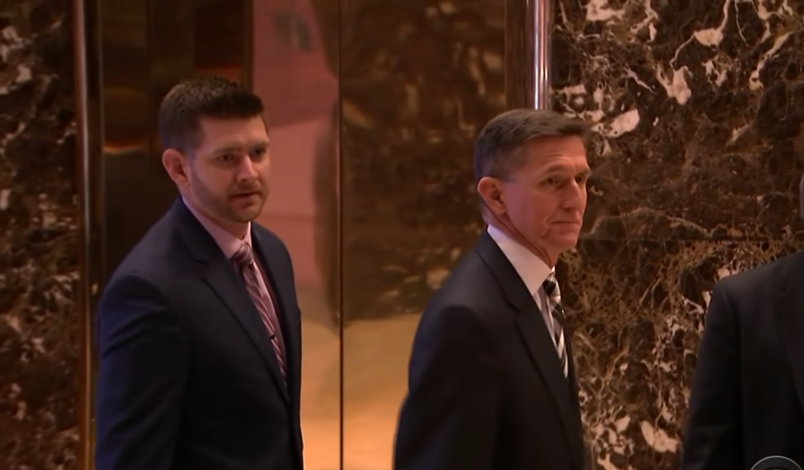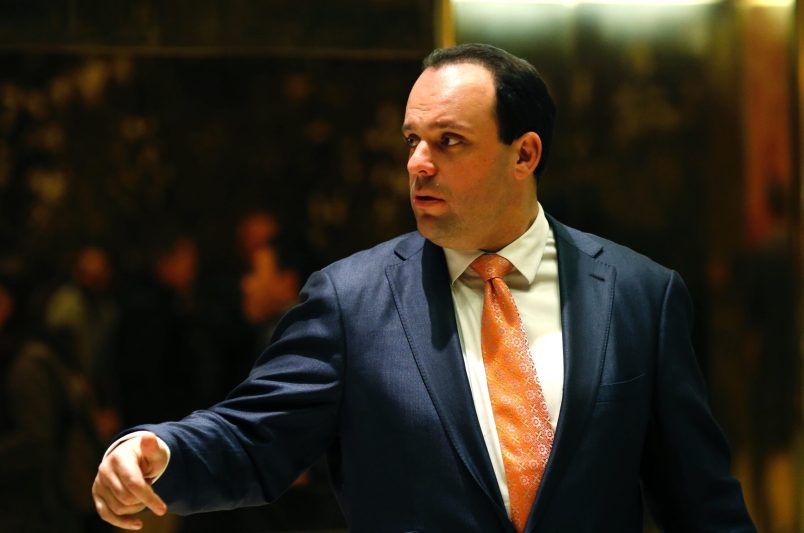You’ve no doubt seen the Wall Street Journal article about the GOP operative and money man who assembled a team to get a hold of Russia-hacked Clinton emails and claimed he was working in concert with disgraced Trump advisor Mike Flynn. From my read, this is one of those articles which is as interesting for what it doesn’t say as what it does. It raises all sorts of questions, a number of which the Investigations Desk will be digging into today.
Here are some basic questions I had.
First, if I’m understanding the calendar right, the Journal’s interview with Peter W. Smith was almost two months before the article appeared, at some time in very early May. That’s a significant period of time. Obviously, big articles take time. But why the big gap? I suspect there was a lot the reporters were working on that couldn’t be confirmed or hasn’t been confirmed yet that took up that time.
Second, Smith wasn’t some random GOP operative with some time on his hands. He had been deep in the the ‘Arkansas Project’ back in the 90s, the money operation that brought us ‘troopergate’ back in the day and to a great extent brought us ‘Whitewater’. Smith had long histories with a lot of big GOP players who are still very active and a number of people who are now top people in the Trump world.
Third, and counter to a lot of the speculation about the Russia story, if Trump or close Trump associates had some de facto understanding with Russian government officials, why would they need Smith to be hiring computer people to reach out to Russian operatives on hacker forums? I can think of a number potential answers to this. But it’s a pretty important question.
Fourth, why did Smith talk to the Journal at all? This may seem like it’s obvious. But it’s really not that obvious to me. One possibility is that the Journal already had a lot of the information and he felt he didn’t have any choice. But remember, Smith apparently died less than two weeks after the interview. If he was gravely ill or even in poor health, he may simply not have cared. He pointed the finger pretty clearly at himself but not clearly at anyone else.
Let’s also remember that this isn’t the first case of this. A month ago two other reporters from the Journal published a story about Aaron Nevins, a GOP political consultant in Florida who reached out to Guccifer 2.0 (now widely believed to have been a front of fictive personality used by Russian intelligence operatives) looking for more operational data for campaigns he was running last year. Shane Harris, the reporter on the new story, also contributed reporting to that story about Aaron Nevins. (There are reasons which I’ll discuss in a subsequent post why Nevins quite likely already stipulated to a criminal act in his interview with the Journal.) When I read this article a month ago, I was struck by the concluding two grafs …
He isn’t convinced the Russians were behind it, Mr. Nevins said, but even if they were, it doesn’t matter to him because the agenda of the hackers seemed to match his own.
“If your interests align,” he said, “never shut any doors in politics.”
This seems to have been a widespread belief among the more adventurous run of GOP political operatives last year: if your interests align with Russian intelligence operatives, it’s not a problem.
I doubt this is the last or even the 10th from last story we’ll hear like this.
Fifth, for all the tantalizing details in the piece, this is the most important.
The operation Mr. Smith described is consistent with information that has been examined by U.S. investigators probing Russian interference in the elections.
Those investigators have examined reports from intelligence agencies that describe Russian hackers discussing how to obtain emails from Mrs. Clinton’s server and then transmit them to Mr. Flynn via an intermediary, according to U.S. officials with knowledge of the intelligence.
We may have suspected this. But to the best of my knowledge, we did not know of the existence of such intelligence until now. That is a very big deal.







